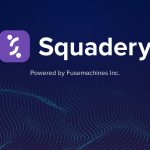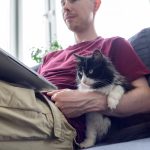
The Squadery team sat down with PhD, AI consultant, and founder of DataSpeckle Bülent Uyaniker, a member of the Squadery network since 2019, to get his insights on being a remote engineer and consultant. We know his input will be valuable for anyone who wants to learn about life as a consultant and is curious about a role in the US from any job market.
We’re excited to share the highlights from our conversation.
- How did you get started as a remote AI engineer?
- What do you enjoy the most about working as a consultant?
- What advice do you have for aspiring engineers looking for a work structure like yours?
- What are the benefits of working remotely?
- What kinds of unique opportunities have you gained access to since working as a consultant, which you might otherwise not have had?
- What advice would you give to other remote senior engineers looking to engage with global companies?
- How are you successfully collaborating with and leading dynamic, remote teams?
- Advice on which aspects I should be considering whether this is the right decision for me?
- In your experience working in a consultant capacity, how early or how late in the process do clients trust your capabilities.
Takeaways from the interview:
- Remote consulting gives young people the opportunity to work on so many different problems and see so many different solutions
- Do not copy anyone else’s work structure because you are your own person
- Try to be the best at something and then apply it to data science
- The flexibility of remote work is its biggest asset
- Consulting work allows you to work on projects and then continuously advance to more and more challenging ones
- Build a toolset as early as possible and learn to socialize with people
- Don’t be afraid to share your idea
- Create shared goals together with your team
- Have goals and understand what skills you need and how you can provide value
- If you cannot open your sails, no wind can help you
1. How did you get started as a remote AI engineer?
I started my own company DataSpeckle. I started working with some companies, looking at data ecosystems, then our paths crossed with Fusemachines. I didn’t one day think that I wanted to be a data scientist — it was an evolutionary consequence of things.
2. What do you enjoy the most about working as a consultant?
There are so many different projects! This is especially important for young people. If you’re doing consultant work, you get to see so many different problems, and so many solutions to these problems.
This is one of the most interesting things working on these projects. Projects keep changing, technology, ideas, and people keep changing. That’s fascinating.
3. What advice do you have for aspiring engineers looking for a work structure like yours?
The most valuable advice I would give to myself starting from scratch: do not copy anyone else’s structure because you are a different person. What works for one person might not work for you.
Try to be best at something, rather than trying to be a data scientist or data person. This is advice for someone starting. If you are excelling writing in Python script, you will end up being a very good programmer. But when we’re doing data science, we need more than that.
Try to be good at something, then think where you can apply that something to data or data science. If someone tells you this is math, I’m not interested in art, these are paintings, we are doing math, don’t trust those people. In life, nothing is separable. Everything is intertwined. Neglecting one of these things is neglecting one part of life.
4. What are the benefits of working remotely?
It gives you a lot of flexibility. This is an interesting lesson we’ve learned in the last few years.
This is the greatest benefit to understanding remote working. We wouldn’t be able to gather together today. We are building on ideas, building questions, building something out of this conversation. That’s fantastic, isn’t it?
5. What kinds of unique opportunities have you gained access to since working as a consultant, which you might otherwise not have had?
If we did not have remote consulting, we wouldn’t be able to work for Norwegian fishers in Norwegian Sea, supply chain of sports company in Germany, add engineers from Kathmandu on a project, collaborate with people in New York and Vancouver — these are the unique opportunities working with distributed teams together on combined projects.
One other benefit is that you are going to be done with this project in 6 months, a year, maybe two, then you will move onto something more challenging.
Time series, supply chain problems, figure out carbon footprint in the world. Fusemachines provides AI2Go courses to rural areas in Florida. These are the opportunities we would never get in a corporate office without this distributed mentality we have today.
6. What advice would you give to other remote senior engineers looking to engage with global companies?
There are a couple things. If you want to solve world hunger but don’t have the tools, want to go to Mars but don’t have the vehicle, the most important thing for new starters and young people is to have a toolbox: tools you need for the problems you’re going to be tackling. In the data world, might be Python, linear algebra, computer vision.
Try to prepare your toolset as early as possible.
The other thing is to learn how to socialize with people. Even if you are an auto mechanic, you’re going to be working with people. With data, people want you to see the world from their perspective and bring the most efficient and cheap solution possible.
Newcomers: prepare your toolset first, go to a corporate environment and see how they work and try to contribute to at least one open source or a startup project to see the wildest part of data science. Thereafter, you’ll be ready to tackle all those fascinating projects you have in mind.
7. How are you successfully collaborating with and leading dynamic, remote teams?
In data science, the rate of satisfaction from the client’s side must be 100%. They cannot tolerate 99%. The work conditions are forcing us to be excellent; therefore, we have to be. This means a lot of pressure. Generate synergy. Two ways to approach this:
You simply go and tell people what to do and their tasks. Procedural approach, give torrent of orders to people, telling them to do this and to do this.
The other one which I prefer: in the first meeting, I tell everyone all ideas are equal and some ideas are better. Wherever the idea comes from is irrelevant. Drop your ego, the best idea wins. If you are shy we are losing your brilliant idea.
Forget your ego, the best idea wins.
Our business is creating ideas, passing on those ideas, realizing those through coding and instruments and technology to provide some value to clients to life and to ourselves. Define goals together with the team. Because sometimes I forget things. Anyone can forget things. But if everybody knows what we are trying to achieve, it’s a lot easier.
8. Advice on which aspects I should be considering whether this is the right decision for me?
This decision has already been made, the decision has already been made before the person looks at this website. They decided to go into data. If you say I am going to be a data person, then I say what do you want to do? Someone called from Wall St and the guy said I want AI. I said how many kilograms? Haha.
If you don’t have goals, if you don’t want to provide data, AI, machine learning, physics, all of these are just tools, not your goals. Your goal is to provide value. If someone is saying they want to be a data scientist, this is just hype, hearing stories about people making that much money and they want to go for it. If this is your motivation, you are going to fail very soon. If someone is looking at this page, they need to be able to see the places they can provide value and at the same time they can learn things. You are applying for a job at a butcher. What skills do you think and experience you must bring and you will gain? This automatically answers the question. You are applying for a job at NASA, what kinds of skills do you need? As a result, what are you going to gain from this? Looking at this goal oriented, it’s going to be a lot easier. What problem you are going to be solving if you go to a company that is doing underwater imaging. What kind of imaging, what kind of information can be extracted.
99% of the time you will be lacking the skills because you’re just entering. You need to know the direction you’re taking, what kind of tool sets you want to bring, transferring information, but at the same time they have expectations — they can only educate people who are ready to be educated. If you cannot open your sails, no wind can help you. You need to be ready for that.
They have already made their decisions. On the practical side, they choose some areas as a primary focus, could be NLP, DL, CV, straightforward ML but underneath is time series analysis. If you have some experience in some of them, you will learn more, bring more value, with the right matching company you will make money as well. This is the best rewarding system we have created in the last thousand of years.
9. In your experience working in a consultant capacity, how early or how late in the process do clients trust your capabilities.
It happens before the project starts. These are very social things. Before we start the project, I must like that project, I must like you. This is a people business. Nobody wants to work with someone they don’t like. Need to have trust.
Your ability, value, ability to provide value is apparent right before the project. Don’t spend money on someone you don’t see value in. Trust and confidence starts early on. If you provide good solutions and you say something and they know you can deliver, at that point they start depending on you.
Final thoughts
Why young people should get into this work:
The world is changing. Can’t keep going with the traditional way of work, traditional methods, resources on this planet are limited, humankind needs other things in terms of feeding, educating, and democracy. For these new problems, we need new technologies. AI, ML are tools making our lives easier, better and more efficient. If not, they are useless.
Powered by Fusemachines, Squadery matches its members with jobs at top US companies looking for talent to work on interesting AI projects. Please visit our website for more information or to apply.





